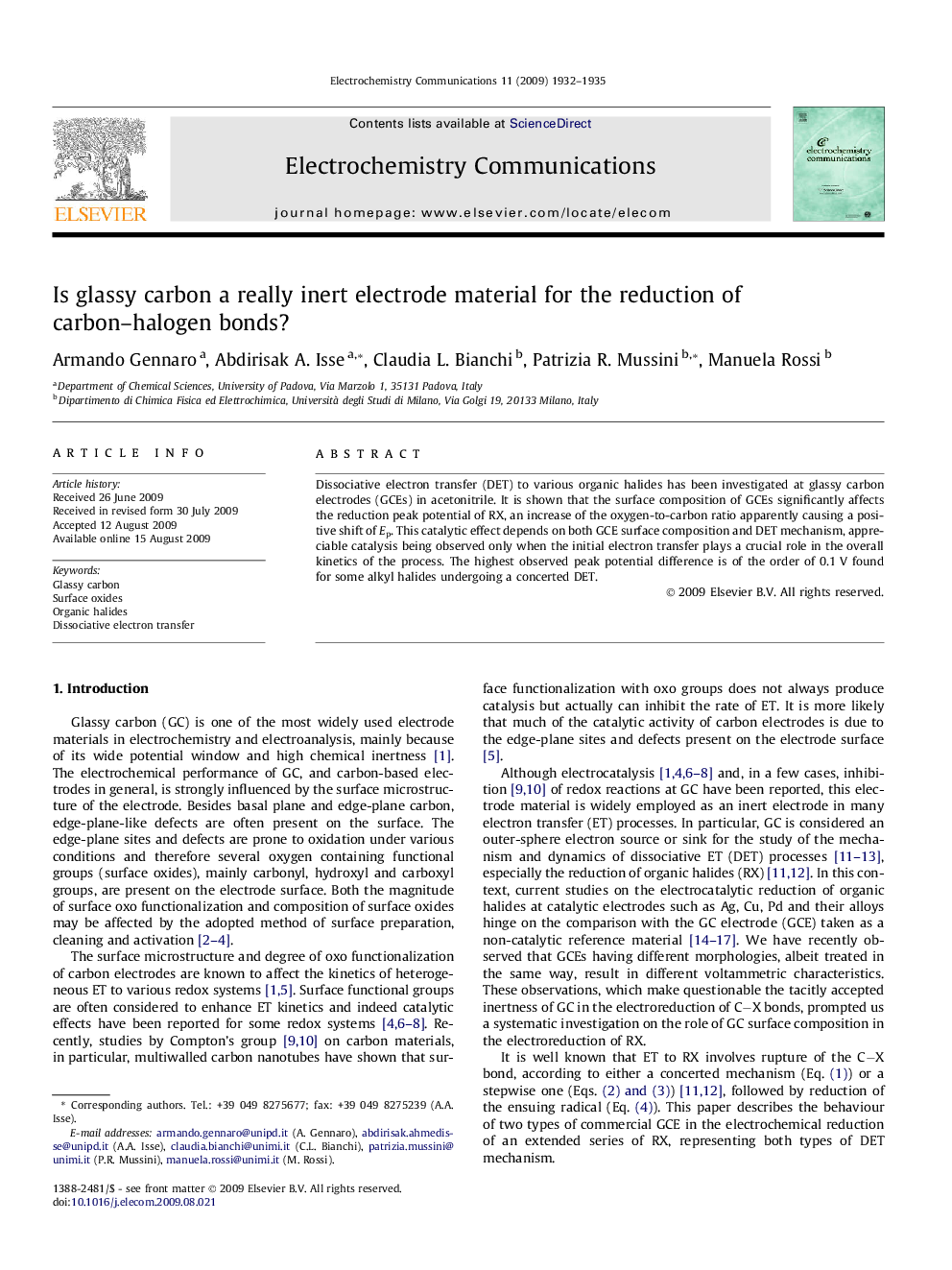| Article ID | Journal | Published Year | Pages | File Type |
|---|---|---|---|---|
| 181084 | Electrochemistry Communications | 2009 | 4 Pages |
Abstract
Dissociative electron transfer (DET) to various organic halides has been investigated at glassy carbon electrodes (GCEs) in acetonitrile. It is shown that the surface composition of GCEs significantly affects the reduction peak potential of RX, an increase of the oxygen-to-carbon ratio apparently causing a positive shift of Ep. This catalytic effect depends on both GCE surface composition and DET mechanism, appreciable catalysis being observed only when the initial electron transfer plays a crucial role in the overall kinetics of the process. The highest observed peak potential difference is of the order of 0.1 V found for some alkyl halides undergoing a concerted DET.
Related Topics
Physical Sciences and Engineering
Chemical Engineering
Chemical Engineering (General)
Authors
Armando Gennaro, Abdirisak A. Isse, Claudia L. Bianchi, Patrizia R. Mussini, Manuela Rossi,
